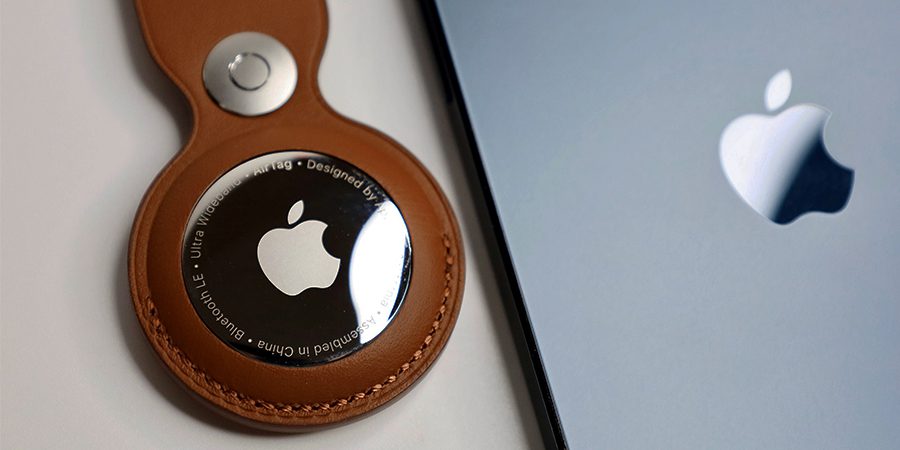In this article, we’ll look at the reasons behind Apple and Google’s collaboration to propose an industry standard that addresses the safety risks associated with AirTags and other Bluetooth tracking devices. The joint effort seeks to create “unauthorized tracking detection and alerts” across Android and iOS devices.
Key Takeaways:
- Apple and Google collaborate to prevent stalking through Bluetooth trackers.
- The proposed standard aims to detect and alert users of unknown trackers traveling with them.
- Other companies like Tile, Chipolo, Eufy Security, Samsung, and Pebblebee support the initiative.
- The new specification has received positive feedback from safety and advocacy groups.
- The Need for a New Industry Standard
- The advent of Bluetooth trackers has raised concerns about user privacy and security.
- These devices, while designed to help users locate lost items, can also be misused for stalking, harassment, and theft.
- Apple and Google’s collaboration aims to address these concerns by proposing a new industry standard to regulate the technology behind these devices.
- This move is in response to growing public concern about the potential misuse of Bluetooth trackers, especially as more companies join the market and the technology becomes increasingly widespread.
Proposed Best Practices to Prevent Misuse
Apple and Google have outlined a set of best practices for creators of Bluetooth tracking devices to prevent potential abuse.
These guidelines intend to minimize the risks associated with location trackers, ensuring that users can enjoy the benefits without compromising their safety.
The proposed best practices include detecting and alerting individuals when a tracker separated from its owner is traveling with them.
This detection would allow users to take appropriate action, including finding and disabling the device if necessary.
By incorporating these safety measures, the tech giants hope to curb unauthorized tracking and misuse of Bluetooth-enabled trackers.
Apple’s Response to Privacy Concerns
Since the release of Apple’s AirTag in 2021, privacy advocates have voiced concerns over the device’s safety.
To address these issues, Apple has implemented improvements to its unknown AirTag alerts on iPhones and developed an app that scans for unwanted trackers on Android devices.
In a statement, Ron Huang, Apple’s vice president of sensing and connectivity, said, “We built AirTag and the Find My network with a set of proactive features to discourage unwanted tracking—a first in the industry—and we continue to make improvements to help ensure the technology is being used as intended.”
The collaboration with Google to establish the new industry standard further demonstrates Apple’s commitment to user privacy and security.
The Benefits of Cross-Platform Collaboration
By joining forces, Apple and Google can more effectively combat the misuse of Bluetooth tracking devices across their respective platforms.
The proposed industry specification would work seamlessly with both Android and iOS devices, ensuring that users of either platform can benefit from the enhanced security measures.
This cross-platform collaboration eliminates the need for dedicated apps to detect unwanted trackers, making it easier for users to be alerted to potential threats.
Moreover, the partnership between these two tech giants is likely to inspire other companies to follow suit and adopt the proposed standard, contributing to a safer technology ecosystem for all users.
Support from Competitors and Advocacy Groups
The joint effort by Apple and Google has garnered support from other companies manufacturing similar tracking devices, such as Tile, Chipolo, Eufy Security, Samsung, and Pebblebee.
These companies recognize the need to address the safety concerns related to their products and are willing to adopt the proposed standard to help combat unauthorized tracking.
The National Network to End Domestic Violence and the Center for Democracy and Technology are among the advocacy groups that have shown their backing for the new industry norm.
Erica Olsen, a representative of the National Network to End Domestic Violence, expressed her gratitude for the new measures taken to reduce the risk of technology being used for abuse and to make it easier for survivors to detect unwanted tracking.
She also looks forward to collaborating further to address this issue of unwanted tracking and misuse.
The backing from both competitors and advocacy groups highlights the importance of a collaborative approach to tackling the challenges posed by Bluetooth tracking devices.
This joint effort demonstrates that companies, regardless of their competitive positions in the market, can come together to address pressing issues that affect user privacy and safety.
By working together and prioritizing the well-being of consumers, these organizations can create a more secure and responsible technology landscape.
Conclusion
The collaboration between Apple and Google to develop an industry standard aimed at reducing the risks associated with AirTags and other Bluetooth tracking devices is a significant milestone in the quest to protect user privacy and security.
With the support of competing companies and advocacy groups, this united effort has the potential to make a meaningful impact on the technology landscape.
By implementing the proposed best practices and fostering cross-platform cooperation, the tech giants are taking critical steps to ensure that the benefits of Bluetooth trackers can be enjoyed without compromising personal safety and privacy.
This collaborative approach serves as a model for how organizations can work together to address pressing issues and create a safer, more responsible technology ecosystem for all users.
 Sections of this topic
Sections of this topic
















